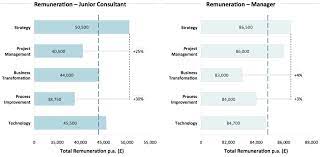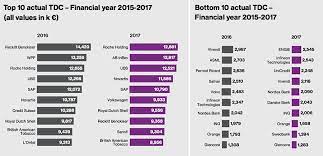Navigating the Media Landscape: The Role of Media Consultancy
The Value of Media Consultancy in Today’s Digital Age
In today’s fast-paced and ever-evolving media landscape, businesses are constantly seeking ways to effectively reach their target audience and stand out amidst the noise. This is where media consultancy plays a crucial role.
Media consultancy involves working with experts who have a deep understanding of the media industry and can provide strategic advice and guidance to businesses looking to enhance their communication efforts. These consultants help businesses navigate the complexities of the media landscape, identify opportunities for growth, and develop tailored strategies to achieve their goals.
One of the key benefits of media consultancy is its ability to provide businesses with a fresh perspective on their communication strategies. Consultants bring a wealth of experience and knowledge from working with various clients across different industries, allowing them to offer valuable insights and innovative ideas that can help businesses differentiate themselves in a crowded market.
Media consultants also play a crucial role in helping businesses adapt to the digital age. With the rise of social media, online advertising, and influencer marketing, staying relevant and engaging with audiences has become more challenging than ever. Media consultants can help businesses leverage these digital channels effectively, ensuring that their message reaches the right people at the right time.
Furthermore, media consultancy can be instrumental in crisis management situations. In times of crisis, having a team of experienced consultants on hand to provide guidance and support can make all the difference in how a business navigates through challenging times and protects its reputation.
Overall, media consultancy offers businesses a strategic advantage in today’s competitive media landscape. By partnering with experts who understand the intricacies of the industry and have a proven track record of success, businesses can enhance their communication efforts, reach new audiences, and ultimately achieve their business objectives.
Mastering the Message: A Comprehensive Guide to Media Consultancy Services for Your Business
- What is media consultancy and what does it involve?
- How can media consultancy benefit my business?
- What are the key services offered by media consultancy firms?
- How do media consultants stay updated with the latest trends in the industry?
- Can media consultancy help my business navigate the digital landscape effectively?
- What role does media consultancy play in crisis management for businesses?
- How can I choose the right media consultancy firm for my specific business needs?
What is media consultancy and what does it involve?
Media consultancy is a service provided by industry experts who offer strategic advice and guidance to businesses seeking to enhance their communication strategies. It involves working closely with clients to understand their objectives, target audience, and market dynamics in order to develop tailored media plans that align with their goals. Media consultants bring a wealth of experience and knowledge from working across various industries, allowing them to provide valuable insights on how businesses can effectively navigate the ever-evolving media landscape. From identifying opportunities for growth to managing crisis communication and leveraging digital channels, media consultancy plays a crucial role in helping businesses stand out amidst the competition and achieve success in their communication efforts.
How can media consultancy benefit my business?
Media consultancy can benefit your business in numerous ways. By working with experienced consultants who possess a deep understanding of the media landscape, you can gain valuable insights and strategic advice to enhance your communication strategies. These experts can help you identify new opportunities for growth, navigate the complexities of the ever-evolving media industry, and develop tailored approaches to effectively reach your target audience. With their expertise, you can differentiate your brand, increase visibility, and build a strong reputation in today’s competitive market. Additionally, media consultancy can provide guidance on leveraging digital channels, crisis management strategies, and overall communication effectiveness, empowering your business to achieve its goals and stay ahead in the dynamic world of media.
What are the key services offered by media consultancy firms?
Media consultancy firms offer a range of key services to help businesses navigate the complexities of the media landscape and enhance their communication efforts. Some of the core services provided by media consultancy firms include strategic communication planning, media relations, crisis communication management, content creation and distribution, social media strategy development, influencer marketing campaigns, brand positioning and messaging, reputation management, and performance analytics. These services are tailored to meet the specific needs of each client and are designed to drive engagement, build brand awareness, and ultimately achieve business objectives in today’s dynamic media environment.
How do media consultants stay updated with the latest trends in the industry?
Media consultants stay updated with the latest trends in the industry through a combination of continuous learning, networking, and monitoring industry publications and platforms. They actively engage in attending industry conferences, workshops, and webinars to gain insights into emerging trends and best practices. Additionally, media consultants often maintain strong relationships with key players in the industry, allowing them to exchange ideas and stay informed about new developments. By keeping a pulse on the ever-changing media landscape and investing time in professional development, media consultants ensure they are equipped with the knowledge and expertise needed to provide valuable guidance to their clients.
Can media consultancy help my business navigate the digital landscape effectively?
Businesses often wonder if media consultancy can help them navigate the digital landscape effectively. The answer is a resounding yes. Media consultancy provides businesses with the expertise and guidance needed to leverage digital channels strategically. Consultants with a deep understanding of the digital landscape can assist businesses in developing tailored strategies that align with their goals, reach their target audience effectively, and stand out in a crowded online space. By partnering with media consultants, businesses can gain valuable insights, stay ahead of trends, and make informed decisions that drive success in today’s fast-paced digital age.
What role does media consultancy play in crisis management for businesses?
Media consultancy plays a crucial role in crisis management for businesses by providing expert guidance and support during challenging times. In the face of a crisis, such as a public relations disaster or negative media coverage, media consultants step in to help businesses navigate the situation effectively. They offer strategic advice on how to communicate with stakeholders, manage media inquiries, and protect the company’s reputation. By leveraging their expertise in crisis communication and media relations, consultants can help businesses address issues promptly, mitigate damage, and ultimately emerge from the crisis with their reputation intact.
How can I choose the right media consultancy firm for my specific business needs?
When considering how to choose the right media consultancy firm for your specific business needs, it is essential to conduct thorough research and evaluation. Start by assessing the firm’s experience and track record in working with businesses similar to yours. Look for case studies or client testimonials that showcase their success stories. Additionally, consider the expertise of the consultants within the firm and ensure they have a deep understanding of your industry and target audience. Communication style and compatibility are also crucial factors to consider, as you will be working closely with the consultancy team on developing strategies and campaigns. Ultimately, choose a media consultancy firm that not only aligns with your business objectives but also demonstrates a passion for helping you achieve success in today’s competitive media landscape.












